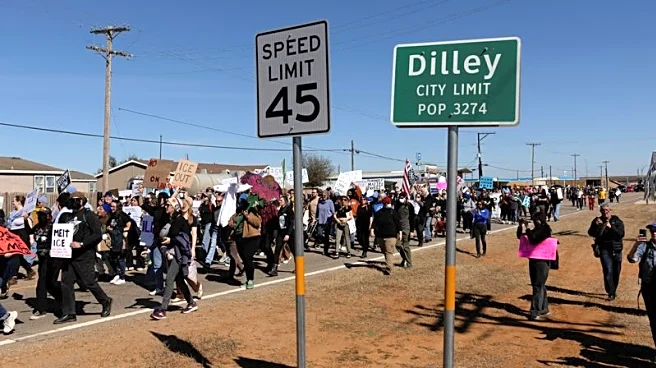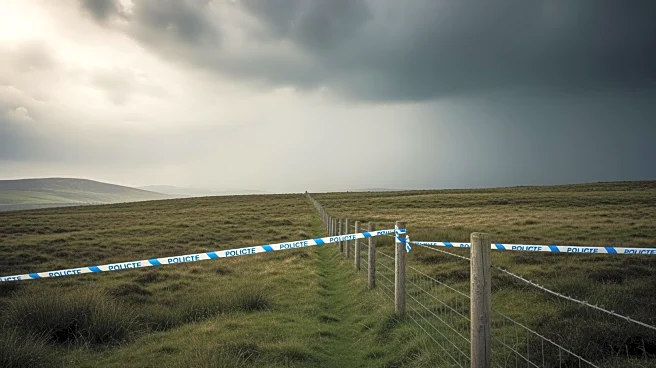What's Happening?
Moody's has revised its economic growth forecast for Israel, projecting a real-term growth of 2.5% in 2025, up from its previous estimate of 2%. The agency anticipates further growth to 4.5% in 2026. This
adjustment comes in light of recent ceasefire developments, which Moody's considers credit positive. However, the agency warns of high risks associated with the geopolitical situation, which could impact economic stability. The ceasefire is seen as a potential catalyst for economic improvement, but uncertainties remain due to the volatile regional dynamics.
Why It's Important?
The revised forecast by Moody's highlights the potential for economic recovery and growth in Israel, contingent upon the stability provided by the ceasefire. This adjustment is significant for U.S. investors and businesses with interests in Israel, as it suggests a more favorable economic environment. However, the high risks noted by Moody's underscore the need for caution, as geopolitical tensions could disrupt economic progress. The situation presents both opportunities and challenges for stakeholders, including policymakers and international investors, who must navigate the complexities of regional politics.
What's Next?
The future economic outlook for Israel will largely depend on the sustainability of the ceasefire and the broader geopolitical climate. Stakeholders, including U.S. businesses and investors, will be closely monitoring developments to assess potential impacts on their interests. Policymakers may need to implement strategies to mitigate risks and capitalize on growth opportunities. The situation could lead to increased diplomatic efforts to ensure long-term stability, which would be beneficial for economic growth.
Beyond the Headlines
The ceasefire's impact on Israel's economy also raises ethical and cultural considerations, as peace efforts could foster improved relations and collaboration in the region. Long-term stability may encourage cultural exchanges and partnerships, contributing to a more integrated and prosperous Middle East. However, the high risks associated with the geopolitical situation highlight the fragility of peace efforts and the need for sustained diplomatic engagement.










